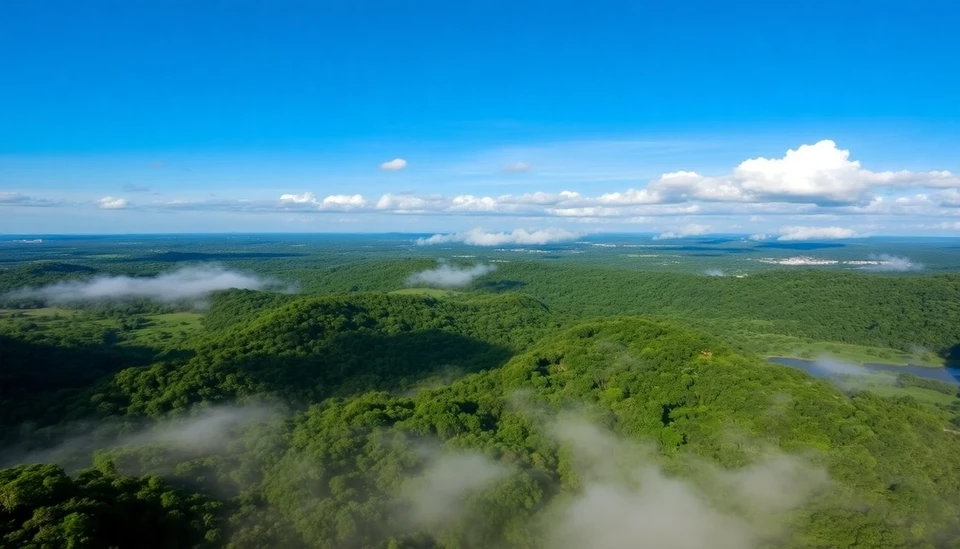
In a surprising turn of events, Brazil is seeking to harness the financial prowess of Wall Street in its ongoing battle against deforestation in the Amazon rainforest. This collaboration aims to secure the future of one of the world’s most vital ecosystems while also addressing the needs of the local and global economies.
The Amazon, often regarded as the lungs of the Earth, has faced unprecedented challenges over the years, with rampant deforestation due to agriculture, logging, and mining activities threatening its existence. With global attention focused on climate change and biodiversity, Brazil is now looking to tap into sustainable finance mechanisms to protect this invaluable resource.
Experts suggest that this new approach could revolutionize how environmental conservation efforts are funded. Brazil's government is actively engaging with private investors and financial institutions to develop innovative financial instruments that would both promote reforestation efforts and ensure profitable returns for investors. This strategy reflects a broader trend where environmental sustainability is integrated into financial markets, creating a win-win scenario for both investors and the environment.
The Brazilian government has introduced a series of initiatives designed to attract Wall Street’s interest. Among these initiatives are carbon credits and impact investment opportunities, which appeal to investors looking to align their portfolios with environmental, social, and governance (ESG) criteria. By creating robust mechanisms for trading carbon credits tied to forest preservation, Brazil hopes to generate significant financial resources to support its environmental goals.
One of the key projects gaining traction is the establishment of a Green Finance Infrastructure Fund. This fund is designed to channel investments into sustainable practices that dramatically reduce deforestation rates while also fostering local economies. By empowering local communities and incentivizing sustainable land use practices, Brazil aims to create a sustainable future for the Amazon rainforest.
Moreover, stakeholders are working tirelessly to develop transparent frameworks that ensure financial contributions lead to measurable environmental outcomes. This transparency is crucial in building trust with international investors who have historically been wary of investing in regions plagued by corruption and governance issues.
However, the journey towards this ambitious goal is not without its hurdles. Critics point out that without a robust regulatory framework, the risk of ‘greenwashing’—where companies portray their practices as more environmentally friendly than they are—could undermine the entire initiative. To combat this, Brazil is committed to ensuring stringent monitoring and accountability measures are in place to guarantee the integrity of the investments.
The country's push towards a financially driven conservation model has sparked diverse reactions. Proponents argue that aligning environmental objectives with financial incentives is the key to creating lasting change and reversing the trends of deforestation. On the other hand, environmentalists express concerns about the potential commodification of nature, arguing that ecosystems should be protected for their intrinsic value, not just their financial benefits.
As Brazil navigates this complex landscape, the eyes of the world remain fixed on its progress. The outcome of this new strategy could set a precedent for environmental finance in other developing nations grappling with similar challenges. Brazil's innovative partnership with Wall Street could inspire a global movement towards sustainable finance, offering a viable solution in the fight against climate change and biodiversity loss.
In conclusion, Brazil's attempt to collaborate with Wall Street is not just a financial strategy but a bold step towards the preservation of one of the planet’s most crucial ecological treasures. Success in this endeavor could reshape the narrative around conservation funding and establish a sustainable model for future generations.
#Brazil #Amazon #Deforestation #WallStreet #SustainableFinance #GreenInvestment #EnvironmentalConservation #ClimateChange #CarbonCredits #ImpactInvesting
Author: Megan Clarke




